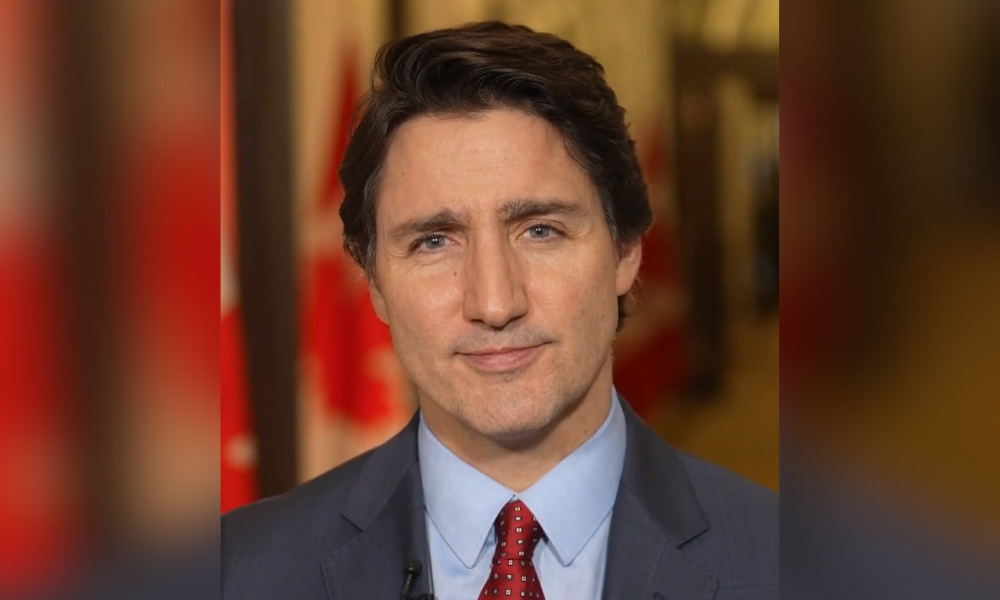After nearly a decade in power, the prime minister leaves a complicated legacy on housing and mortgage matters

After weeks of mounting pressure, Justin Trudeau stepped in front of the cameras on Monday morning and confirmed what many had long suspected: his time as prime minister and leader of the Liberal Party is drawing to a close.
Growing calls within his own caucus for a change in leadership, and the prospect of a successful no-confidence vote in his government when parliament resumes, left Trudeau with little other option but to resign – and his legacy as prime minister will be the subject of intense debate in the weeks ahead, with his record on the housing and mortgage fronts an especially contentious issue.
Home prices and mortgage debt have spiked during the prime minister’s near-decade in power, boosting many homeowners’ wealth as a surging housing market throughout much of Trudeau’s tenure also helped spur higher sales volume within the mortgage industry.
Justin Trudeau has confirmed that he will step down as Liberal Party leader and prime minister, bringing an end to almost a decade at the helm and sparking a leadership contest to take his place.https://t.co/iF22R61JYB
— Canadian Mortgage Professional Magazine (@CMPmagazine) January 6, 2025
But that red-hot market came with a significant downside: prospects for many Canadians hoping to purchase their first home are now far worse than they were at the beginning of Trudeau’s tenure.
“Real estate and mortgage professionals benefitted greatly since the fourth quarter of 2015, when Trudeau became PM,” JP Boutros (pictured below), mortgage brokering sector advisor and Financial Services Regulatory Authority of Ontario (FSRA) Mortgage Brokering Strategic Advisor Committee member, told Canadian Mortgage Professional. “Real estate commissions and the taxes they generated were tremendous. Mortgage professionals became essential parts of the economy, with mortgage debt growing along with housing values.

“Investing in real estate became ludicrously lucrative with interest rates kept at consistently historic lows for longer than necessary – but while there was a huge financial windfall for the housing and mortgage markets, the flipside must also be acknowledged. In my recent conversations with Canadians currently attending university, the Canadian Dream is no longer about homeownership, but simply about having an affordable place to live.”
Trudeau policies on housing affordability drew mixed response
Trudeau stormed to a majority government in 2015 with a promise to strengthen Canada’s middle class and help those “working hard to join it.” But Boutros said inaction or poor policy on the housing file had only widened income inequality across the country and created a generation of Canadians whose chances of buying a home largely depended on whether their parents could help them afford it.
Recent measures introduced by Trudeau’s administration to improve homebuying prospects for younger Canadians have included a hike in the mortgage insurability cap and expanded access to 30-year amortizations, both of which have been greeted positively by sectors of the mortgage industry.
In December, Toronto broker Matt O’Neil told CMP the insured mortgage cap increase to $1.5 million would allow many clients in the city and surrounding areas to purchase a house, having previously been restricted to the condo market.
Others took a dim view of the changes, with Realosophy president John Pasalis describing them as a “short-term policy fix” that would make a minimal impact on improving housing affordability.
Boutros acknowledged that Trudeau’s government had tried to get Canadians into homeownership – but said those efforts were “laughable rather than laudable.”
He highlighted the First-Time Home Buyer Incentive, a much-maligned program that aimed to boost affordability for new buyers but saw little to no uptake in major markets, as an especially noteworthy policy failure.
That measure, which sought to reduce monthly mortgage payments for qualified first-time buyers through a shared-equity program, was launched in September 2019 but shelved last year.
“I described it in 2019 as ‘a political scheme designed to look like it was doing something without doing anything at all,’” Boutros said. “It added expenses to lenders who had to retool their IT to incorporate it, cost taxpayers considerably, and its designs basically helped almost no-one who didn’t already qualify to be a homeowner.”
Canada's new mortgage rules, effective Sunday, raise the insured mortgage cap to $1.5 million and allow 30-year amortizations for first-time homebuyers. Experts say these changes improve affordability but could lead to short-term price inflation.https://t.co/hPLmCO8fs1
— Canadian Mortgage Professional Magazine (@CMPmagazine) December 17, 2024
Millions of new homes needed as housing supply crisis continues
Canada is far from the only western country currently gripped by a housing crisis, with Australia, the US, and the UK all experiencing acute supply shortages and mounting unaffordability.
Experts including Yushu Zhu and Hanan Ali of Simon Fraser University have emphasized that the roots of Canada’s housing malaise stretch back to the 1980s and 1990s, and a major shift in the government’s approach to the issue that pivoted away from construction of social housing.
Trudeau’s government launched the National Housing Strategy (NHS) in 2017, earmarking $82 billion over a 10-year period to build affordable housing and reduce homelessness.
Last April, his administration also rolled out a new housing plan it said would unlock 3.87 million new homes by 2031, building a minimum of 2 million net new homes to supplement the 1.87 million Canada Mortgage and Housing Corporation (CMHC) says will be finished by that year.
How far that plan will get remains to be seen, particularly with polls currently indicating an overwhelming likelihood that the Conservative Party will lead Canada’s next government after the next election (set to take place on or before October 20).
Until then, the debate over who’s to blame for the current Canadian housing crisis will rumble on. “All in all, housing in Canada became more unachievable for aspiring homeowners, and more costly for existing homeowners,” Boutros said.
“How much Team Trudeau is to blame for this is for others to decide, but it’s an objective summation of the housing and mortgage landscape in the Trudeau Decade.”
Make sure to get all the latest news to your inbox on Canada’s mortgage and housing markets by signing up for our free daily newsletter here.


